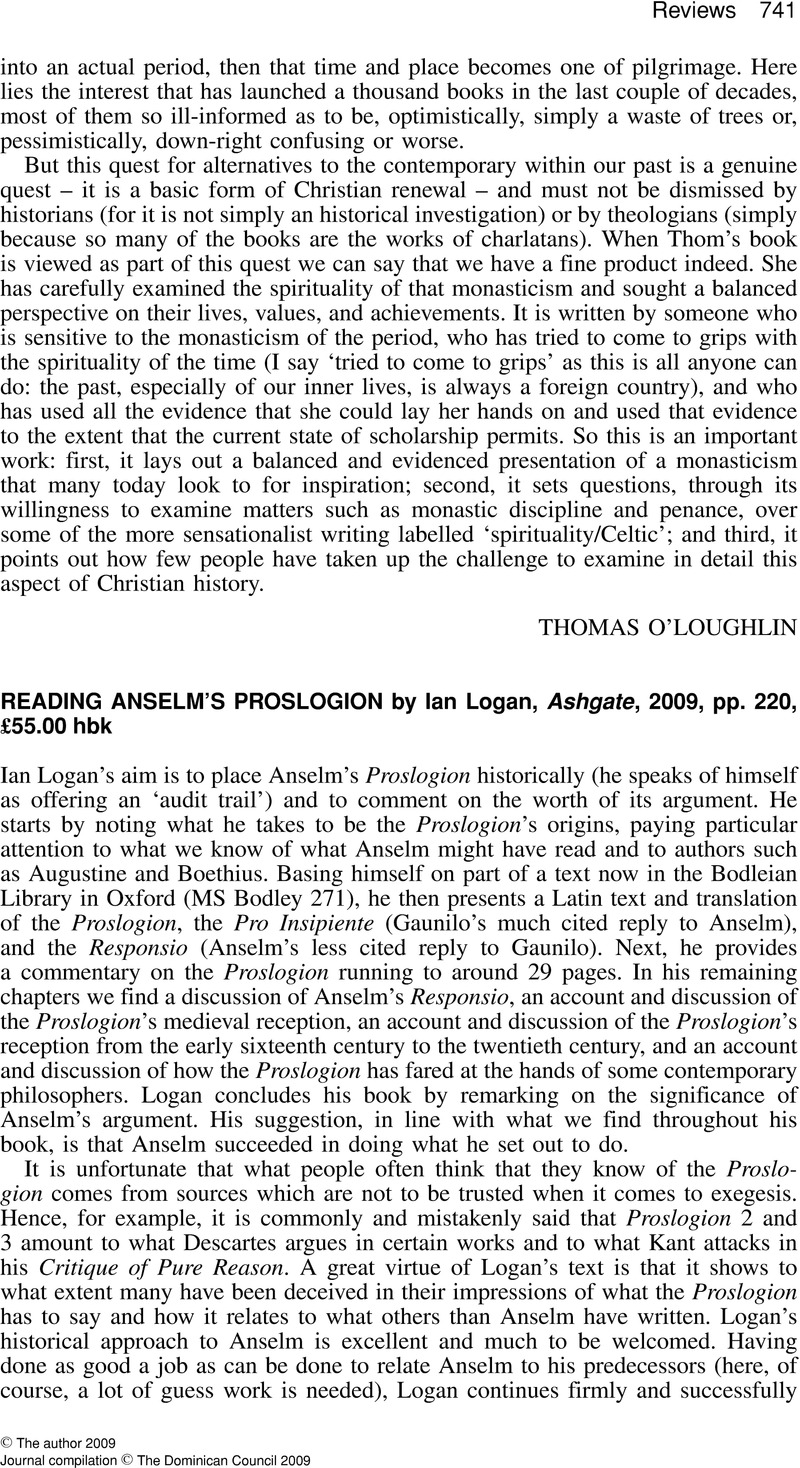No CrossRef data available.
Article contents
Reading Anselm's Proslogion by Ian Logan, Ashgate, 2009, pp. 220, £55.00 hbk
Review products
Reading Anselm's Proslogion by Ian Logan, Ashgate, 2009, pp. 220, £55.00 hbk
Published online by Cambridge University Press: 01 January 2024
Abstract
An abstract is not available for this content so a preview has been provided. Please use the Get access link above for information on how to access this content.

- Type
- Reviews
- Information
- Copyright
- Copyright © The author 2009. Journal compilation © The Dominican Council 2009


